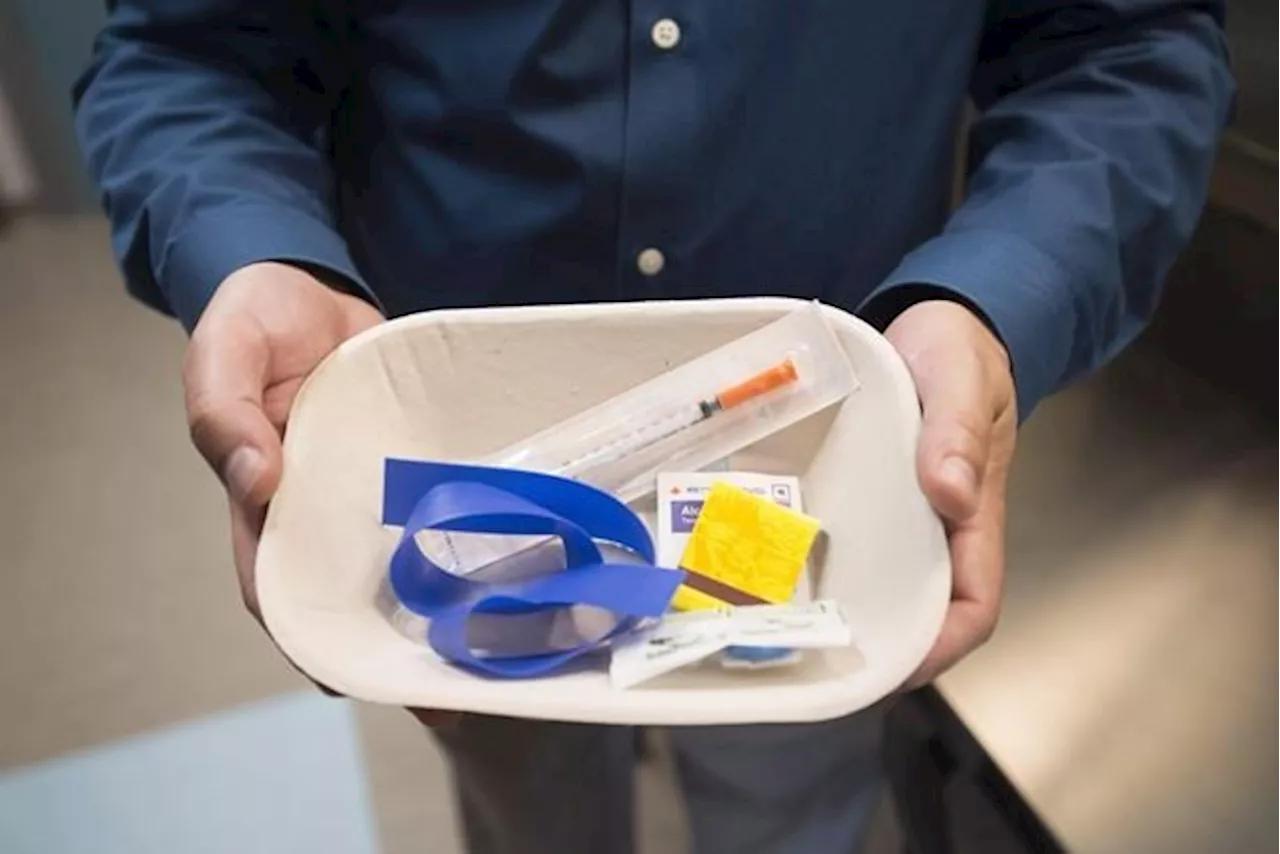The head of British Columbia's police watchdog says caring for intoxicated prisoners is a health-care issue and shouldn't be a police responsibility. A report released by Ronald J. MacDonald, the chief civilian director of the Independent Investigations Office, says holding those who are intoxicated in jail cells is outdated and offers no guarantee of their safety and health.
SURREY, B.C. — The head of British Columbia 's police watchdog says caring for intoxicated prisoners is a health-care issue and shouldn't be a police responsibility .
The report came after a man in Williams Lake, B.C., who was thought to be suffering from alcohol or drug withdrawal, had a"life-threatening health crisis" in RCMP cells last year. The report says the RCMP's call for help was actually"optimal" for the man because his symptoms were serious enough that he was hospitalized, but any later would have increased his risk of death.
British Columbia Police Watchdog Intoxicated Prisoners Health-Care Issue Police Responsibility Report Safety Health RCMP Cells Hospital Death Custody
Canada Latest News, Canada Headlines
Similar News:You can also read news stories similar to this one that we have collected from other news sources.
 British Columbia's Police Watchdog Calls for Health Care Responsibility for Intoxicated PrisonersThe head of British Columbia’s police watchdog says caring for intoxicated prisoners is a health care issue and shouldn’t be a police responsibility. A report released by Ronald J. MacDonald, the chief civilian director of the Independent Investigations Office, says holding those who are intoxicated in jail cells is outdated and offers no guarantee of their safety and health.
British Columbia's Police Watchdog Calls for Health Care Responsibility for Intoxicated PrisonersThe head of British Columbia’s police watchdog says caring for intoxicated prisoners is a health care issue and shouldn’t be a police responsibility. A report released by Ronald J. MacDonald, the chief civilian director of the Independent Investigations Office, says holding those who are intoxicated in jail cells is outdated and offers no guarantee of their safety and health.
Read more »
 Health professionals, not police should care for intoxicated prisoners: B.C. watchdogSURREY, B.C. — The head of British Columbia's police watchdog says caring for intoxicated prisoners is a health-care issue and shouldn't be a police responsibility. A report released by Ronald J.
Health professionals, not police should care for intoxicated prisoners: B.C. watchdogSURREY, B.C. — The head of British Columbia's police watchdog says caring for intoxicated prisoners is a health-care issue and shouldn't be a police responsibility. A report released by Ronald J.
Read more »
 Health professionals, not police should care for intoxicated prisoners: B.C. watchdogSURREY, B.C. — The head of British Columbia's police watchdog says caring for intoxicated prisoners is a health-care issue and shouldn't be a police responsibility. A report released by Ronald J.
Health professionals, not police should care for intoxicated prisoners: B.C. watchdogSURREY, B.C. — The head of British Columbia's police watchdog says caring for intoxicated prisoners is a health-care issue and shouldn't be a police responsibility. A report released by Ronald J.
Read more »
 Health professionals, not police should care for intoxicated prisoners: B.C. watchdogSURREY, B.C. — The head of British Columbia's police watchdog says caring for intoxicated prisoners is a health-care issue and shouldn't be a police responsibility. A report released by Ronald J.
Health professionals, not police should care for intoxicated prisoners: B.C. watchdogSURREY, B.C. — The head of British Columbia's police watchdog says caring for intoxicated prisoners is a health-care issue and shouldn't be a police responsibility. A report released by Ronald J.
Read more »
 Canada's Public Health Agency Calls for Updated Drug StrategyThe Public Health Agency of Canada is urging for an updated drug strategy due to the changing drug landscape and the gaps revealed during the COVID-19 pandemic. The strategy aims to prioritize community-based programs, law enforcement support, and harm reduction projects.
Canada's Public Health Agency Calls for Updated Drug StrategyThe Public Health Agency of Canada is urging for an updated drug strategy due to the changing drug landscape and the gaps revealed during the COVID-19 pandemic. The strategy aims to prioritize community-based programs, law enforcement support, and harm reduction projects.
Read more »
 Canada's Public Health Agency Calls for Updated Drug StrategyThe Public Health Agency of Canada is urging for an updated drug strategy due to the changing drug landscape and the gaps revealed during the COVID-19 pandemic. The strategy aims to prioritize community-based programs, law enforcement support, and harm reduction projects.
Canada's Public Health Agency Calls for Updated Drug StrategyThe Public Health Agency of Canada is urging for an updated drug strategy due to the changing drug landscape and the gaps revealed during the COVID-19 pandemic. The strategy aims to prioritize community-based programs, law enforcement support, and harm reduction projects.
Read more »
